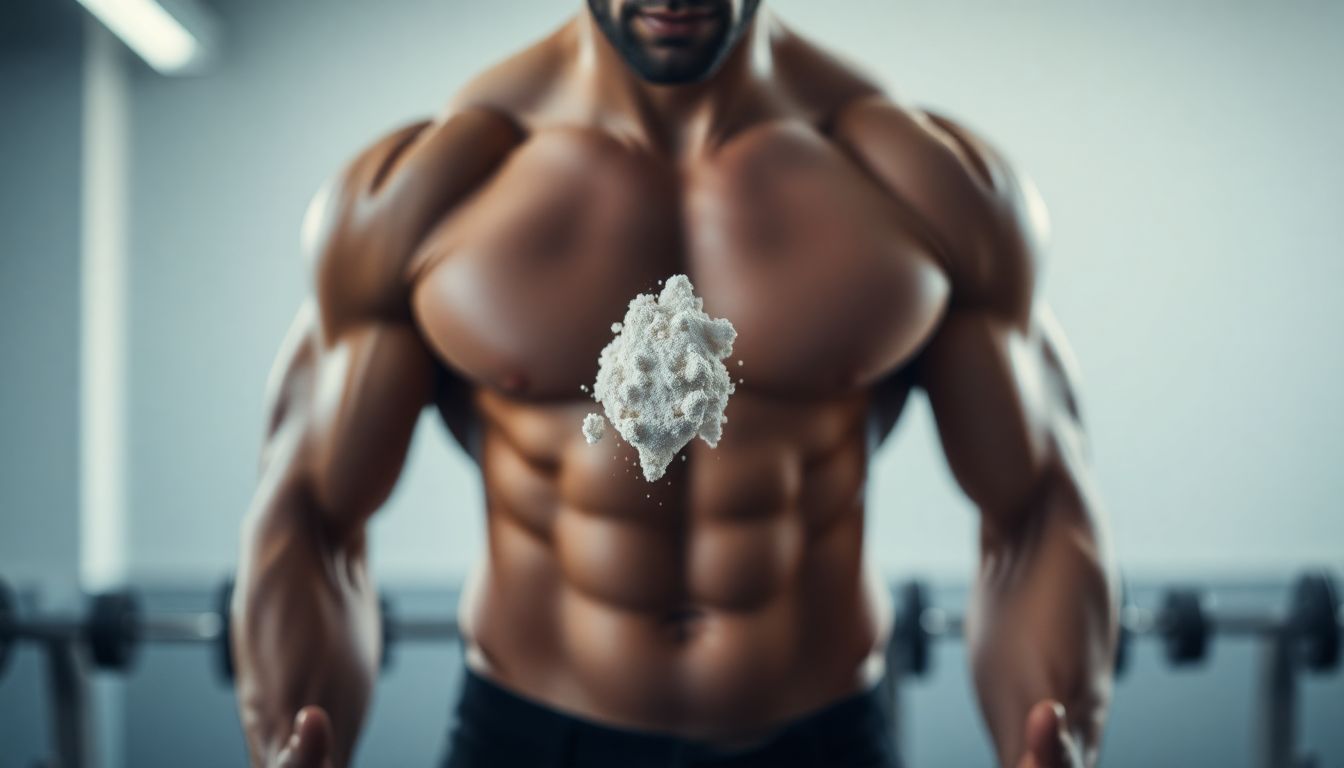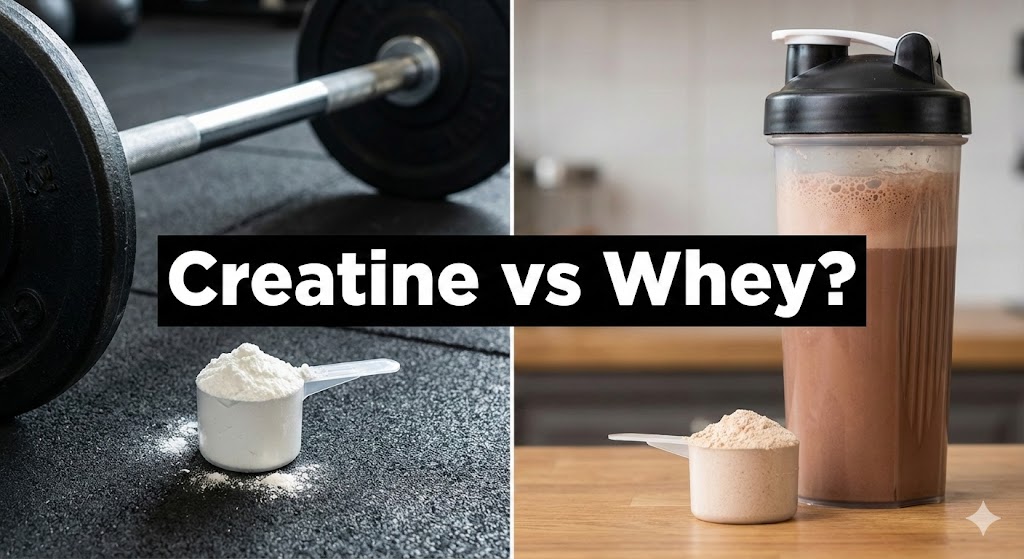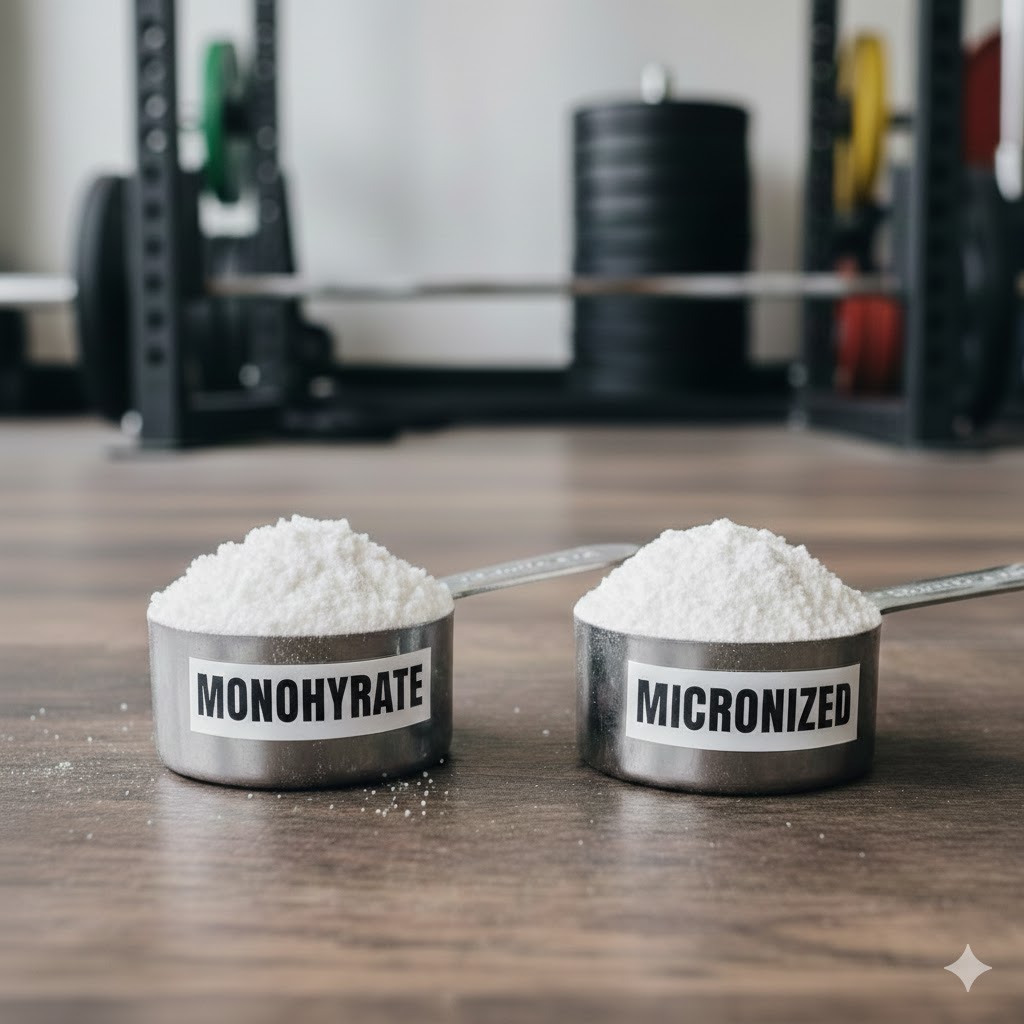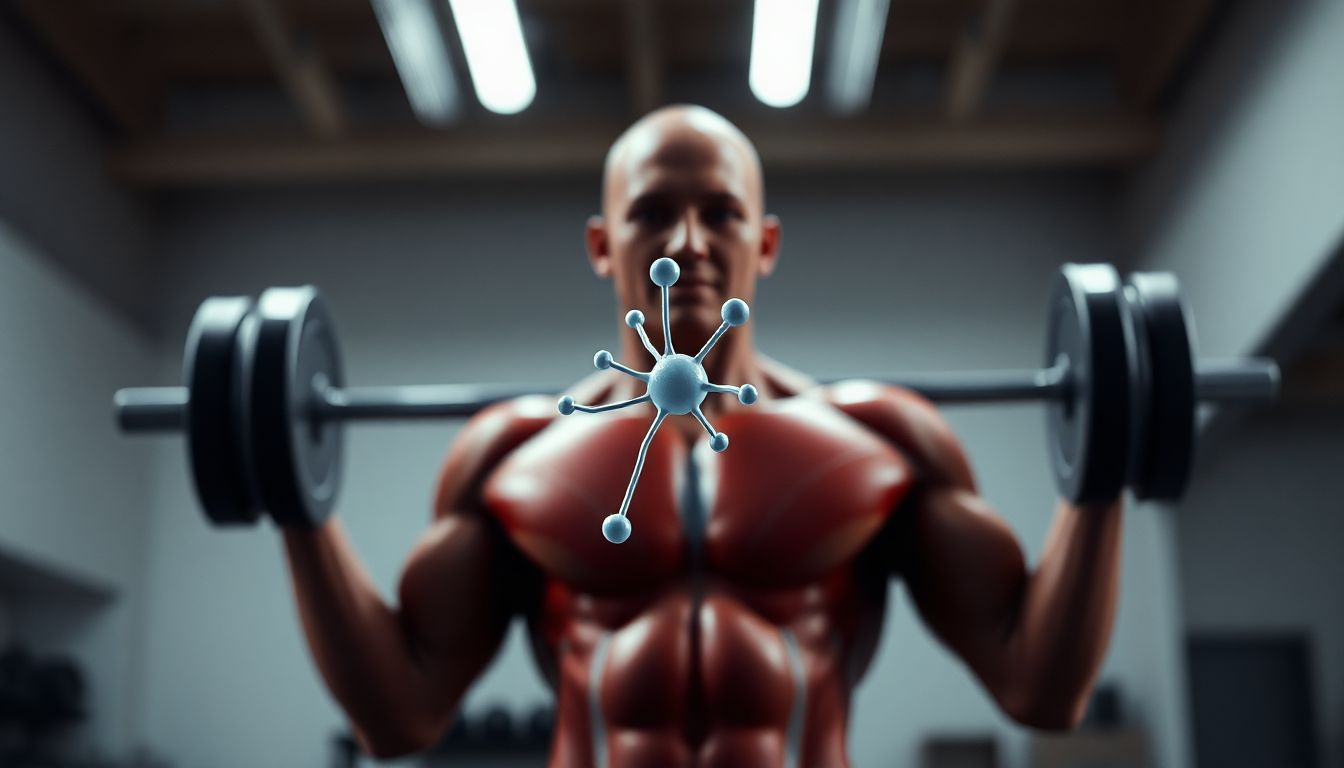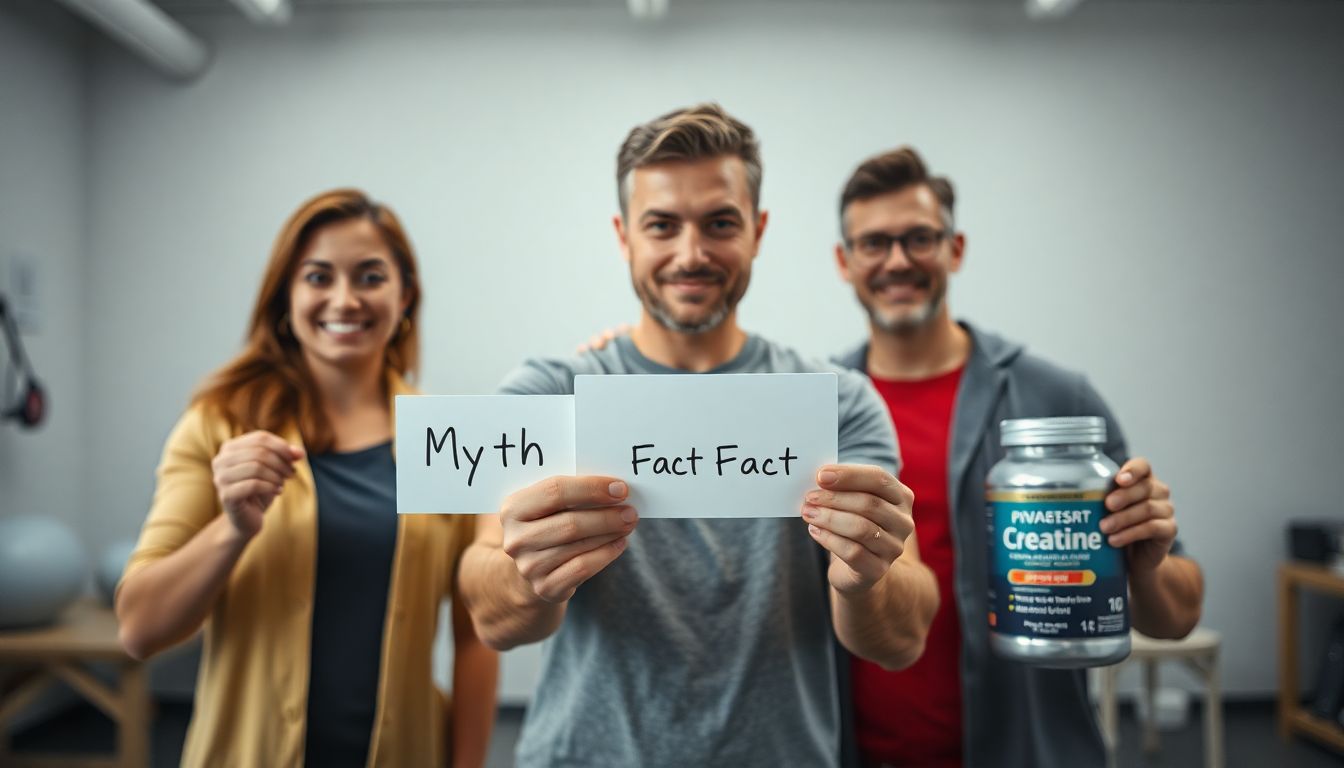Creatine is an organic compound naturally produced in the body and obtained through diet, primarily found in muscle cells. It plays an essential role in energy production, particularly during high-intensity, short-duration activities like weightlifting or sprinting.[1][2]
The Science Behind Creatine
Creatine is synthesized from three amino acids: arginine, glycine, and methionine, mainly in the kidneys and liver. Approximately 95% of the body’s creatine is stored in skeletal muscles, acting as a phosphate reservoir in the form of phosphocreatine. This phosphate group is crucial for regenerating adenosine triphosphate (ATP), the body’s primary energy currency during intense physical efforts.[2][3][4][5][1]
Supplemental creatine, commonly in the form of creatine monohydrate, increases phosphocreatine stores in muscles, enhancing energy availability during exercise.[2]
Why Is Creatine Important?
- Muscle Energy: Supplemental creatine enhances the ability to sustain high power output during resistance or sprint training.[1]
- Muscle Growth: By increasing training volume and recovery, creatine indirectly supports hypertrophy and strength gains.[4]
- Brain Function: Creatine is also present in the brain, where it supports energy metabolism, with emerging evidence suggesting cognitive benefits, particularly in stress or fatigue.[6]
- Health Benefits: Creatine may aid in combating age-related muscle loss (sarcopenia) when combined with resistance exercise.[7]
Common Uses of Creatine
- Enhancing athletic and gym performance
- Supporting muscle recovery and growth
- Potential cognitive support in elderly or sleep-deprived individuals[6]
- Usage is common among athletes but extends to general fitness and healthy aging populations
For detailed scientific insights, see our pillar article: The Ultimate Guide to Creatine
Frequently Asked Questions (FAQs)
1. Does creatine cause water retention or weight gain?
Creatine can cause temporary water retention in muscles, leading to slight weight gain. Read More
2. Is creatine an anabolic steroid or does it affect hormones?
No, creatine is not a steroid and does not affect your hormone levels. Read More
3. Is creatine safe for long-term use?
Yes, creatine is safe for long-term use when taken as recommended. Read More
4. Is a loading phase necessary for creatine?
Loading accelerates muscle saturation, but daily low doses also work effectively. Read More
5. Will creatine cause hair loss?
There is no scientific evidence linking creatine to hair loss. Read More
6. Can creatine cause dehydration or muscle cramps?
Creatine does not increase risk of dehydration or cramps with proper hydration. Read More
7. Is creatine suitable for women and older adults?
Yes, creatine is effective and safe for women and older adults. Read More
8. Can creatine improve cognitive function?
Creatine may help improve brain function, especially under stress or fatigue. Read More
9. Are there risks for people with kidney problems?
Those with kidney disease should consult a doctor before using creatine. Read More
10. Can I take creatine with other supplements?
Yes, creatine can be safely combined with protein, BCAAs, and other supplements. Read More

Ready to Experience the Benefits of Creatine?
Based on our comprehensive research, we recommend Creatine Ultimate CRN-5 for its scientifically-backed formula and proven effectiveness.







